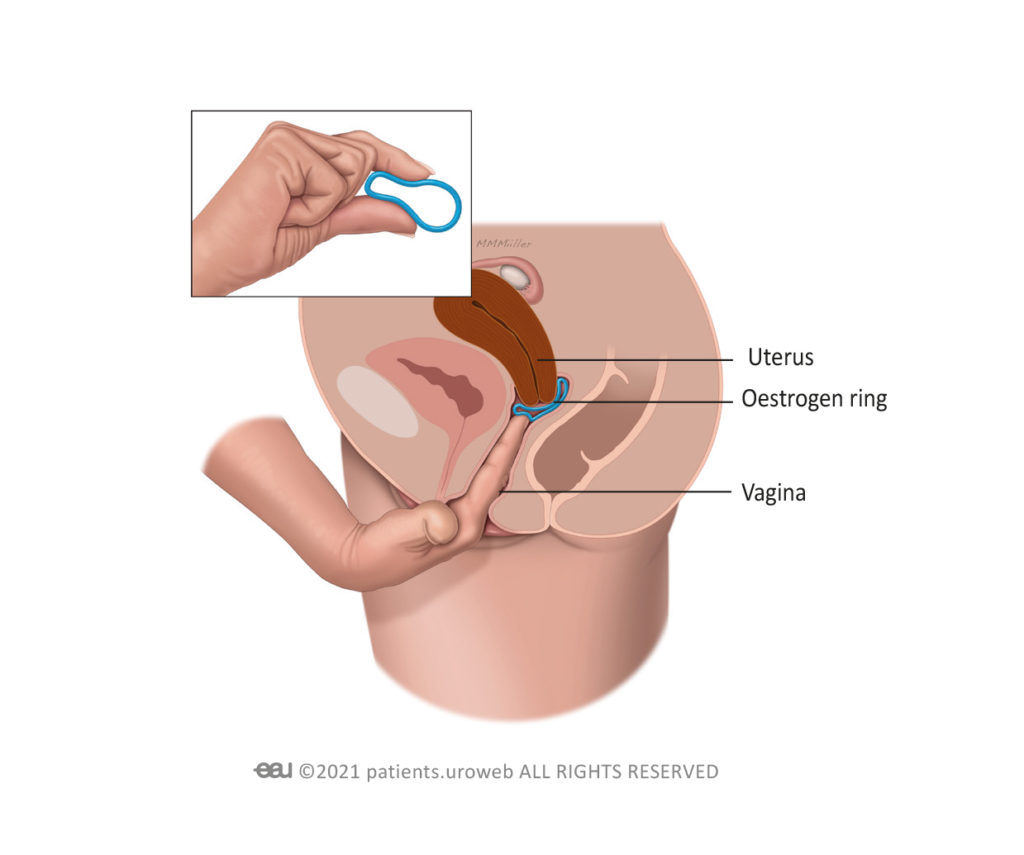Muscarinic receptor antagonists
This medication treats the urgent need to urinate by blocking nerve signals that cause the bladder to squeeze and empty. This means that sudden, uncontrollable bladder activity happens less often, and the bladder can hold more fluid because it is relaxed. This medication also reduces the number of times you need to go to the toilet each day to urinate.
They can also be used to manage the frequent need to urinate at night, a condition known as nocturia. However, they are not suitable for stress urinary incontinence because stress incontinence is caused by different circumstances.
There are several types of muscarinic receptor antagonists. Most are taken as a tablet. Some are taken once a day and work for 24 hours. Others can be taken multiple times a day and have an immediate, but shorter effect. One type, Oxybutynin, is also available as a cream or skin patch.
Side-effects of these medicines are usually mild, such as dry mouth and eyes, constipation, difficulties urinating, blurred vision, and dizziness. In older people, these medicines may cause reduced memory and also confusion. This may be true for Oxybutynin.
Mirabegron
This is a type of medicine called a Beta-3 receptor agonist. These medicines relax the bladder muscle, helping to increase the amount of fluid the bladder can hold and to reduce the urgent need to urinate.
The immediate side-effects of Mirabegron are usually mild, such as nausea (feeling sick), constipation, diarrhoea, headache and feeling dizzy. They may improve once your body has got used to the medication. The long-term effects of the medication are currently unclear, but what is known is that you cannot take Mirabegron if you have high blood pressure that is not under control with medication.
Oestrogen
This is a hormone in women that plays an important role in being able to hold urine until going to the toilet. Oestrogen is known to improve blood flow and increase nerve function. It also helps maintain the strength and flexibility of tissues in the urethra and vagina.
As women age, they naturally produce less oestrogen. This may affect the bladder and urethra in a way that can contribute to problems with bladder control. Oestrogen therapy may be recommended if you suffer from urinary incontinence and have already gone through menopause. The treatment comes in the form of a vaginal cream, an oestrogen-releasing device (called a vaginal ring) inserted into the vagina, or an oestrogen-releasing tablet inserted into the vagina.
There is no evidence that vaginal oestrogen therapy cures stress incontinence, but it may improve or even cure urge incontinence.
Oestrogen can also be used in combination with other medications to treat urinary incontinence. When vaginal cream is used correctly, it usually doesn’t cause side-effects. The ideal length of time that vaginal oestrogen therapy should be given for is currently unknown and the long-term side-effects are still being researched.

Oestrogen-releasing vaginal ring

Oestrogen-releasing tablet
Duloxetine
This is used to improve, rather than cure, moderate to severe stress incontinence, however, it is not a standard treatment for stress incontinence in most countries in Europe.
It only works on a temporary basis, in two ways. Firstly, it strengthens the urethra valve muscle. When you urinate, this valve opens allowing urine to pass through it and out of your body. In the case of some urinary incontinence, this valve can open when you don’t want it to, and this causes urine to leak out, because the valve muscle is weak. So, by strengthening this valve, Duloxetine reduces urine leakage, as it helps the urethra valve to remain closed, keeping the urine in. Secondly, Duloxetine reduces any incorrect nerve signals sent to the urethra valve by the bladder which may cause the valve to mistakenly open and leak urine.
Common side-effects include nausea and vomiting, dry mouth, constipation, tiredness, and difficulty sleeping.
For any of the medications listed here, it is important to have a discussion with your doctor as to which treatment is most appropriate for you. The good thing is, that there are plenty of options for you to try.

